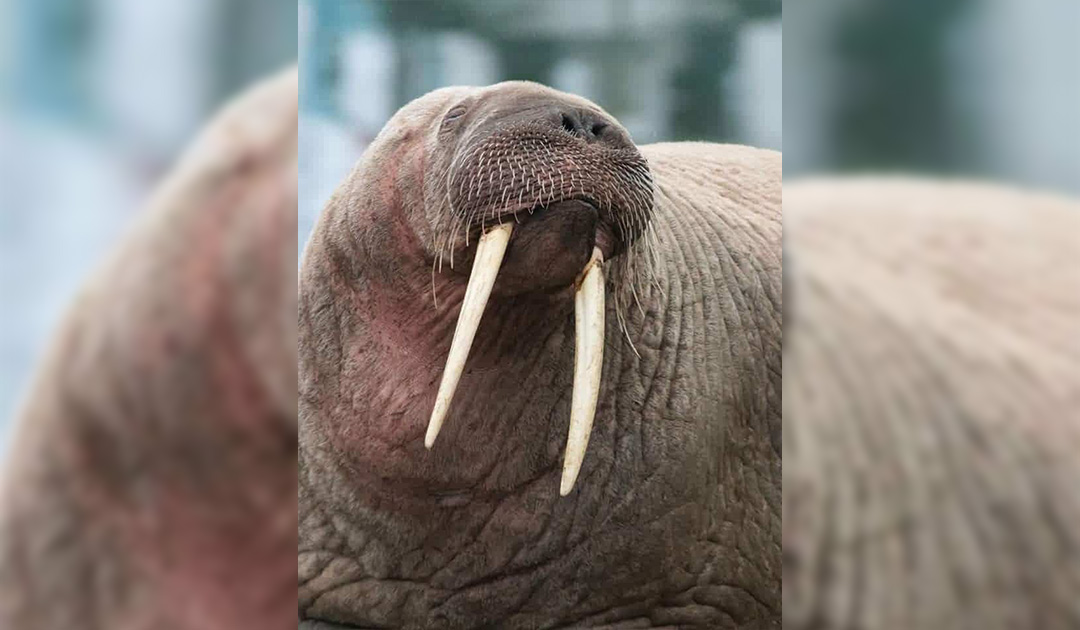
Just last summer, several walruses on the move – including “Wally” and “Freya” – excited many people in Western and Northern Europe. Now one of the Arctic dwellers is on the move again along the English coast, attracting thousands of onlookers. “Thor” had spent the turn of the year in Scarborough, where the public New Year’s Eve fireworks were canceled for the good of the unusual visitor.
As reported by the British Divers Marine Life Rescue (BDMLR) organization, Thor was first sighted in the Netherlands on November 6, 2022. After moving along the French coast to Brittany, it made its way north again and found a beach to rest on in Southampton in southern England on December 11, 2022.
On the penultimate day of the year, Thor arrived in Scarborough in the northern English county of Yorkshire, where it rested on a boat ramp in the harbor. Public interest was understandably huge and Thor attracted a total of thousands of visitors from the region but also from far away, according to BDMLR. Never before has a walrus been observed in Yorkshire.
When the walrus was still in the harbor on New Year’s Eve, the city government, on the advice of BDMLR, decided to cancel the fireworks display. For the animal, the noise and lights would have caused too much stress and possibly caused it to panic. Despite the numerous onlookers who were kept at a distance, Thor could thus rest undisturbed and gather strength before going back into the water on New Year’s Day and to swim away.
The young male continued its journey north, arriving in Blyth, 160 kilometers away, yesterday evening, where it used a pontoon of the yacht club for his rest. Experts believe that it will set off again towards the Arctic after the recovery phases on the British coast.
Julia Hager, PolarJournal
More on the subject:





